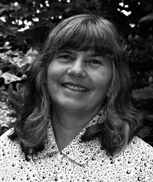That, for a while, was as far as my good intentions went. The bulbs sat in the bags I had bought them in, and I engaged with the world in a variety of other ways—a bit like prayer can be, really. The good intentions are there, and even some degree of preparation. But when push comes to shove, almost anything, however trivial, can intervene and claim a higher place among our priorities.
Then, one morning, I was reading Anne Lamott’s Plan B: Further Thoughts on Faith and came upon her comment that bulbs are prayer too. Bulbs! She must have been reading my mind. Maybe my bulbs, still hanging there in the bag, might open that creaky gate to prayer. Maybe my bulbs could double as my personal Plan B. With renewed enthusiasm I got out the trowel and fork and set to on my unpromising backyard.
Now it happened that around this time I received an e-mail message from an old friend who had been going through a rough patch. We hadn’t been in touch for a while, and at the end of his message he added a postscript. “Check out Is 45:3,” he said, “in the N.R.S.V.” Eager for any glimmer of encouragement in the general gloom of an approaching winter, I did as he suggested and found there this promise: “I will give you the treasures of darkness and riches hidden in secret places.” It felt as though the bulbs themselves had spoken those words.
My first discovery, when I finally spread the bulbs out on the grass in preparation for burial, was that a few of them had started to go moldy. These especially reminded me of issues in my life that I seem incapable of dealing with appropriately myself or, more sensibly, surrendering into God’s hands. Instead they just hang around, like a bad smell, becoming more putrid with every passing day. I picked up the offending bulbs, wiped the green sheen from their outer skins, and laid them with as much gentleness as I could muster into the hole I had dug for them. In my heart I tried to lay to rest some of the life issues as well, trying to convince myself that I really do believe in resurrection and transformation.
The remaining bulbs followed—down into the darkness. It certainly feels like burial in the fall. But in the springtime.... Will there be a resurrection? Will these little specks of incipient life actually blossom out of this unlikely soil? My prayer as I planted was simple: “Lord, I believe. Help my unbelief.” And with every bulb, a little dream was buried too. A little hope. A little anxiety. I covered them all with a layer of the compost of trust, and there they lie in God’s hands, for there is nothing more that I can do for them now.
My reflective time in the garden gave way to that peculiarly English reward for work completed: a cup of tea. As I enjoyed my brew, a memory came to mind that made me laugh out loud. Two people I know well once had a dear friend who died suddenly and prematurely, leaving them in deep grief for many months. Some years later they told me the story of how they had gone to her grave in what we in England rather graphically call the back end of the year, and planted daffodil bulbs for her. As they planted they, like me, were planting their sorrow and their loss. The following spring they returned to the graveside, full of hope that their grief would have turned into the promise of new life. But when they arrived they found no daffodils dancing in the April breeze. Instead they found a clump of sturdy onion plants! They tell me they stood there at their friend’s grave and howled with laughter. Maybe they even recalled another of God’s promises: “I will turn their mourning into joy. I will comfort them and give them gladness for sorrow” (Jer 31:13). They tell me too that amid their own peals of laughter they could distinctly hear their friend laughing along with them.
Sometimes I think the darkness is one of God’s richest gifts to us. Things grow in the darkness. When I walk in my cold, damp, winter garden, I know now that it contains treasures still unrevealed. When I sift through the poor soil of my heart, I know that it holds secret riches that only God knows about.
A story is told of an eminent heart surgeon who liked to debate the existence of God with his faithful gardener. One day he thought he had clinched the matter. “I have cut open thousands of human hearts,” he said, “but I have never seen a soul inside them.” But the gardener had the last word: “Over the years I have accidentally sliced through thousands of daffodil bulbs with my spade, and I have never seen a daffodil inside them.”
The dark holds treasures beyond our imagination, and the poverty of a wintering earth contains secret riches; but they reveal themselves in God’s time, not ours. To be a believer is to trust in this unseen becoming. Some of my own concerns are lying at peace now in the garden. I will leave it to God whether they grow into daffodils or onions. Either way, today’s tears will become tomorrow’s laughter.








